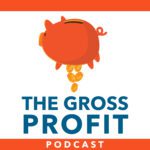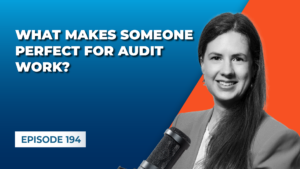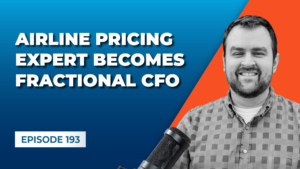Chris Norris talks to James Kennedy about how organisations should handle suspected fraud and embezzlement.
Anyone involved in investigating and responding to suspected employee fraud in particular should listen in to this expert interview.
On this episode we talk about:
- Interview and investigation best practices
- How to deal with fraud and other integrity issues
- Reading reactions during an interview
- When to escalate internal matters to the authorities
If you’re a company director or financial professional, listen in and let us know if you have any comments or feedback.
Chris Norris is the director of WZ International, with more than 30 years of experience in the loss prevention and investigative fields. He has conducted numerous investigations for both private companies and public agencies and has also trained thousands of law enforcement and private individuals, using the concept of non-confrontational interviews.
Chris wanted to go into law enforcement, but ended up starting a career in loss prevention after getting a job in the private sector in the United States. This job was doing internal investigations on theft and fraud in retail environments. Later, he moved to Chicago and was hired by a company to work on their loss prevention program. The department continued to grow and expand and this led to Chris becoming the corporate director for Wicklander-Zulawski.
The WZ method of non-confrontational interviews has been used throughout his career, as he investigated things like white-collar crime, cargo theft, organised crime and a variety of other corporate crimes.
What Is The Fraud Triangle?
There are 3 aspects to the fraud triangle:
- Opportunity
- Motive/Pressure
- Rationalisation.
The opportunity has to be there, there has to be some sort of personal financial pressure and they have to rationalise the fraud.
What Is The Size Of A Company That Needs An Internal Investigations Department?
Chris says any organisation should have some element, whether it’s outsourced or internal, that’s looking into any claims or allegations that are related to finances.
“I know that I have provided training for smaller organisations that have less than 50 people that want someone in-house that is looking after risk-management and then under the risk-umbrella, would handle elements of potential fraud.”
Is Fraud More Likely To Be Internal Or External?
The National Research Federation in the US does annual studies on theft in the workplace. They have concluded that it tends to be that the impact on a business is greater when fraud has been committed internally because they have access to you everytime they are on a shift.
What Leads To A Company Suspecting Internal Fraud?
In this episode, Chris discusses a particular case he investigated for a company who suspected embezzlement. During a quarterly reconciliation for taxes, one of their accountants noticed something unusual about this employee’s travel expense vouchers and his reimbursements. What the accountant had noticed was that he was reimbursed for high-value, international, business class airfare, but there weren’t any accompanying expenses. There was no hotel, transportation, meals, entertainment, etc… The accountant went to the controller and asked why the company would be paying that. Normally, a company will sit down with their employee and just ask them why there was only this single expense for that trip, but this company approached it differently (and correctly!) They essentially confront them with evidence of fraud that proves that something is not right and then the employee gets a chance to explain things away.
Instead, they decided to investigate if this was an anomaly. They did their own digging before talking to them and they hired Chris to conduct a non-confrontational interview with them.
How Does The Non-Confrontational Approach Work?
Prior to the meeting with Chris, they audited this employee’s expense vouchers for a year and a half and the results of the audit reflected two other incidents.
It is important to note that going into the meeting, there are 3 explanations for this unexplainable expense:
- There could be an operational flaw to how they were processing payments.
- They could have a retraining issue and the employee could have been unaware of how to input reimbursements properly.
- There are elements of fraud.
Side note: If you’ve just read these 3 points and you think that maybe your company isn’t processing payments correctly – you need our purchasing software. Don’t manage your company purchases using confusing spreadsheets or word-of-mouth.
The way that WZ does it is they follow non-confrontational protocols. The meeting was set up with the CFO who had expressed their concerns about this fraud with Chris and they arranged a meeting where they brought him in as a consultant. When the employee came in, Chris introduced himself very transparently and about what he does for WZ. If someone falls into one of the first two categories and he has introduced himself saying he’s there for a meeting about profitability, when the employee hears that what Chris does might include looking at air travel within the company, they will see it as him trying to make them more profitable, if they fall into the third category, they’ll see it as something to be concerned about. They both have a conversation where Chris asks better questions that will allow him to evaluate their behaviour and their responses continue down a particular path. Other times, they have an accusatory interview but in a non-confrontational way, by talking about how good people sometimes make bad decisions.
In the first approach, they would talk all about their job and those questions would lead to questions about their business travel and reimbursements on travel expenses. It’s at that point we go from non-threatening topics to the core topic. If they say things that contradict what the audit reveals, we have to ask ourselves why are they hiding something that we know for a fact is not true. In this case, the employee admitted that they had stolen this money from this company and even admitted that they had been embezzling money from them for 10 years and that they had embezzled close to half a million dollars in that 10 year period. They actually shook Chris’ hand and thanked him for how he handled the conversation.
We hoped you enjoyed this episode!
If your company’s purchases are hard to manage, then you need ProcurementExpress.com!




